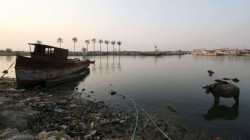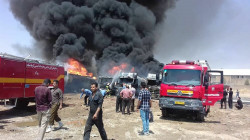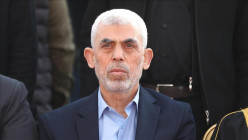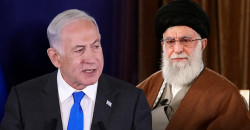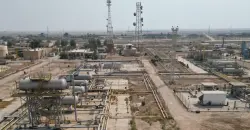Iran faces a mysterious scene: could it be the second-largest OPEC oil producer again?
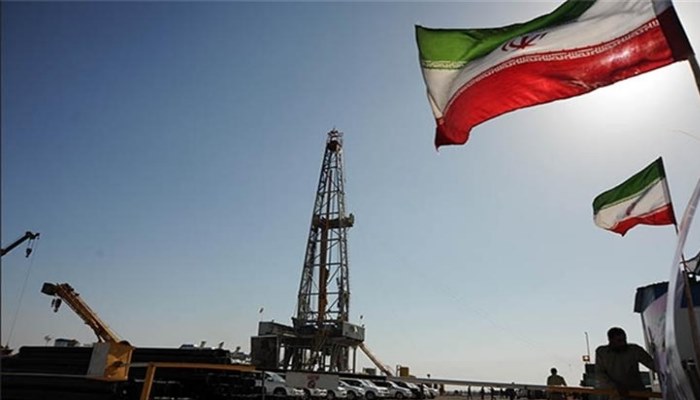
Shafaq News/ Despite the painstaking diplomatic efforts to revive the nuclear pact between Iran and the United States, diplomats say an agreement would be reached after nearly a year of talks; however, the disagreements between the two parties are still deep.
Both Tehran and Washington have described the nuclear negotiations as constructive. However, they have also said that tough political decisions need to overcome the remaining differences.
Speaking at the Munich Security Conference on February 19, the German Chancellor Olaf Scholz said, "We now have the chance to reach an agreement that will allow the sanctions to be lifted," but warned, "If we don't manage to do this very quickly, the negotiations risk failing."
Iran's Foreign Minister Hossein Amir-Abdollahian said at the Conference, "the West would be to blame if talks to revive the 2015 nuclear deal fail as Tehran is ready to reach a good agreement."
On February 18, Amir-Abdollahian said "a good and achievable agreement" was attainable while adding that the timing will depend on Western countries.
After ten months of talks, one of the remaining differences is Iran's demand for a U.S. guarantee of no more sanctions and the return of millions of Tehran's oil to the global market.
According to the International Energy Agency (IAE), before the sanctions, Iran was the second-largest oil producer in the OPEC - the Organization of the Petroleum Exporting Countries.
"Reaching an agreement in Vienna potentially bringing 1.3 million barrels per day (bpd) of Iranian oil back into the market. That could ease tight global supply and take some heat out of a rally that has taken benchmark prices to just a few dollars short of $100 a barrel." IAE said.
Due to the impact of sanctions on its exports, Iran is exempt from the existing deal between the Organization of the Petroleum Exporting Countries and allies, known as OPEC+, to limit oil supply.
A source familiar with Iranian thinking told Reuters that Iran would first seek to restore its lost output but would likely agree to a quota after talks with OPEC+. Iran is one of the five founding members of OPEC.
"In my opinion, OPEC+ will set a quota for Iran's oil production but will apply it gradually, and Iran will accept the quota with some bargaining to show its support for OPEC."
Analysts said that Tehran would not agree to restrict its oil production again after lifting the sanctions, which will disturb the OPEC + plan and the market be flooded with Iranian oil, so there will be a large supply and a decline in oil prices.
For the United States, it would make sense to lift the sanctions on Iran to help lower prices given the domestic pressure the administration of President Joe Biden is facing due to rising inflation. The United States may also be considering that any output from Iran would ease the impact on global oil markets of any conflict between Russia and Ukraine, a source familiar with Russian oil thinking told Reuters.
Despite the sanctions, China has reported that in 2021, it imported $6.5 billion of Iranian oil.
China also announced that the volume of Iranian oil reached 1.9 million barrels last December.
According to Iran's Customs Organization, Iran's total exports, including oil, to China reached $35 billion.
Traders say Iranian crude is being exported to China as oil from Oman, the United Arab Emirates, and Malaysia to avoid sanctions.
Officials from the National Iranian Oil Company (NIOC) also met with at least two South Korean officials to discuss the return of supplies from the oil-producing country in the Arab Gulf region.
But, Tehran is still firm not to compromise its rights; Iranian lawmakers have set conditions for reviving the 2015 Iran nuclear deal with global power.
In a letter to President Ebrahim Raisi, 250 out of 290 parliamentarians demanded that U.S. and European parties must guarantee that they would not exit a restored agreement.
"We have to learn a lesson from past experiences and put a red line on the national interest by not committing to any agreement without obtaining necessary guarantees first," lawmakers said in the letter.
They also said a return to the deal should only go ahead if all sanctions were lifted, including terrorism, missile technology, and human rights.
In addition, lawmakers first want to confirm that Iran receives money from its exports before the government returns to nuclear compliance, the statement said.
However, Ali Vaez, Iran specialist at the International Crisis Group, said the negotiations could lead to one of two scenarios.
"If in the next few days, the Iranians don't back off from some of their demands, then I think what you're likely to see is a Western walkout," he said.
That could lead to a resolution criticizing Iran being put forward at the next Board of Governors meeting of the U.N. nuclear watchdog, the International Atomic Energy Agency, due to begin on March 7.
Vaez said this could be the first step in a "cycle of escalation."
The more optimistic scenario would entail "a breakthrough in the next four or five days," opening the door for a deal being "announced towards the end of this month or early March."
